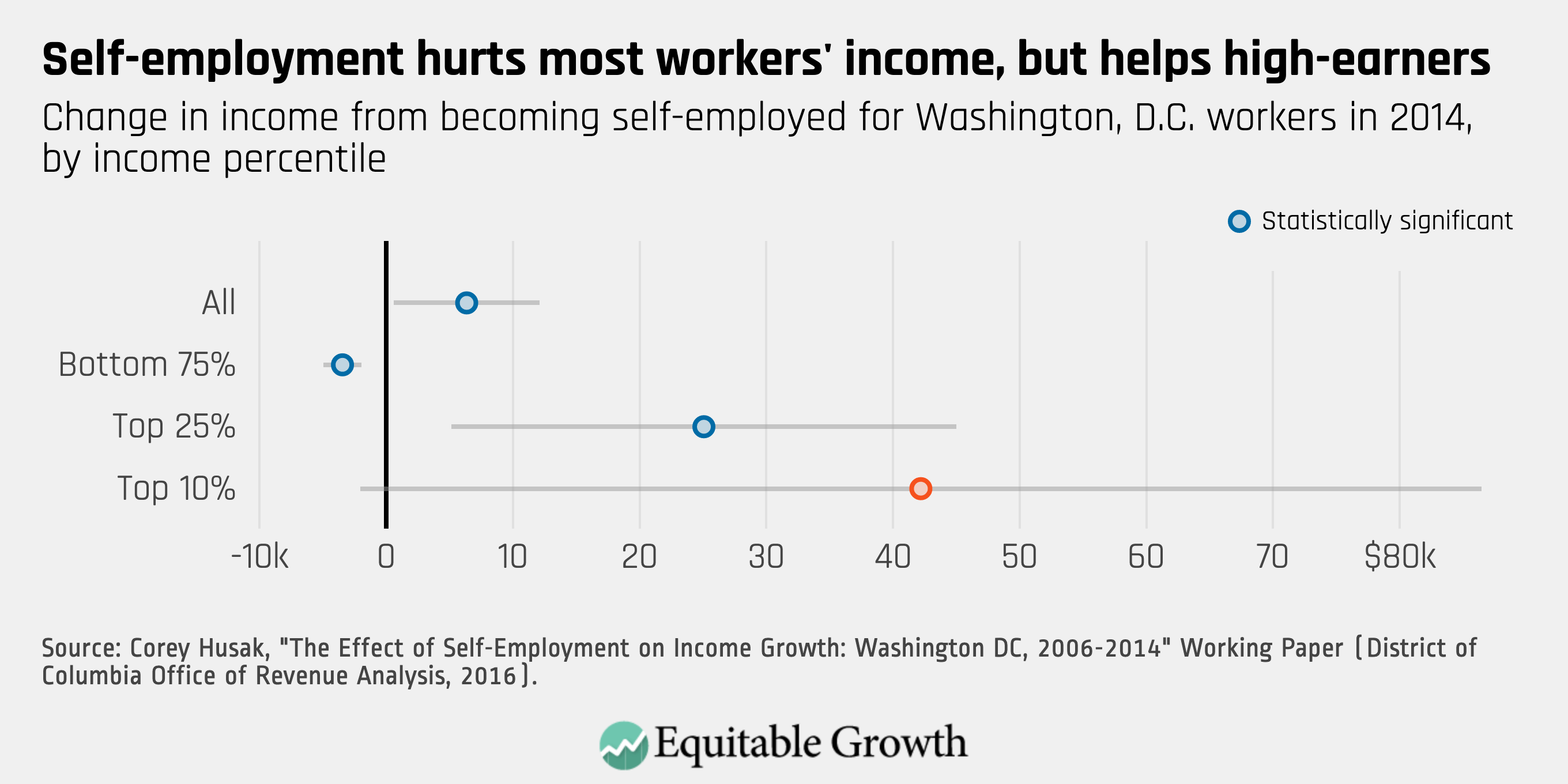Weekend reading: “Five hours, twenty candidates, lots of plans” edition
This is a post we publish each Friday with links to articles that touch on economic inequality and growth. The first section is a round-up of what Equitable Growth published this week and the second is relevant and interesting articles we’re highlighting from elsewhere. We won’t be the first to share these articles, but we hope by taking a look back at the whole week, we can put them in context.
Equitable Growth round-up
Being classified as either an employee or an independent contractor can determine whether workers in the United States have access to reliable pay, benefits, and protection from discrimination. Many “gig economy” companies, writes Corey Husak, base their business models on misclassifying their workers as self-employed. Billions of dollars in worker pay and benefits is at stake for these workers, who generally lack the meaningful work independence one associates with true independent contractors.
Michael Kades continues to track the progress in the U.S. Congress of bipartisan legislation to contain prescription drug prices by injecting greater competition into the marketplace. Last month, two Senate committees passed legislation that the Washington Center for Equitable Growth advised Congress would help achieve this goal. This follows action by the full House on related or identical bills. The legislation has had strong bipartisan support throughout the process, and the White House is supportive, but Kades points out that barriers remain.
The U.S. Bureau of Labor Statistics issued its monthly report on the U.S. labor market. Kate Bahn and Will McGrew perused the report, which covers July, and compiled five graphs highlighting important trends.
Catch up on Brad DeLong’s latest worthy reads from Equitable Growth and around the web.
Links from around the web
What’s the best way to gauge the health of the U.S. economy? Not necessarily by measuring Gross Domestic Product, writes Gretchen Frazee at PBS. She notes that it disregards key factors that affect people’s well-being, such as health and the environment, and cites Equitable Growth grantee Nancy Folbre, who notes that it ignores unpaid work, including taking care of one’s children. [pbs]
Chicago’s city council has approved a “fair workweek” ordinance that requires large employers to give workers at least two weeks’ notice of their schedules and compensate them for last-minute changes, writes Alexia Elejalde-Ruiz at the Chicago Tribune. A lack of schedule stability is gaining increasing attention as both a source and product of income inequality. [Chicago Tribune]
There are a number of ways to see that an economic expansion is near or at an end and a recession is on the horizon or actually underway, writes Ben Casselman at The New York Times. Recessions are inevitable, and recognizing them before the economy has already begun contracting has been more art than science. But that may no longer be true. Casselman cites Equitable Growth Research Advisory Board member Claudia Sahm‘s rule of thumb, which focuses on changes in the unemployment rate. [nyt]
The DoorDash tipping controversy continues to make for interesting reading. Columnist Farhad Manjoo writes that the issue “lays bare how shaky and capricious the entire digital economy is for workers.” “What worries me,” he adds, “is that these laborers are invisible ‘ghost workers’ hidden behind screens and apps and algorithms and digital tip jars, working for unpredictable, A.I.-dictated, sub-minimum wage…” [nyt]
Friday figure

Figure is from Equitable Growth’s “How U.S. companies harm workers by making them independent contractors,” by Corey Husak.

